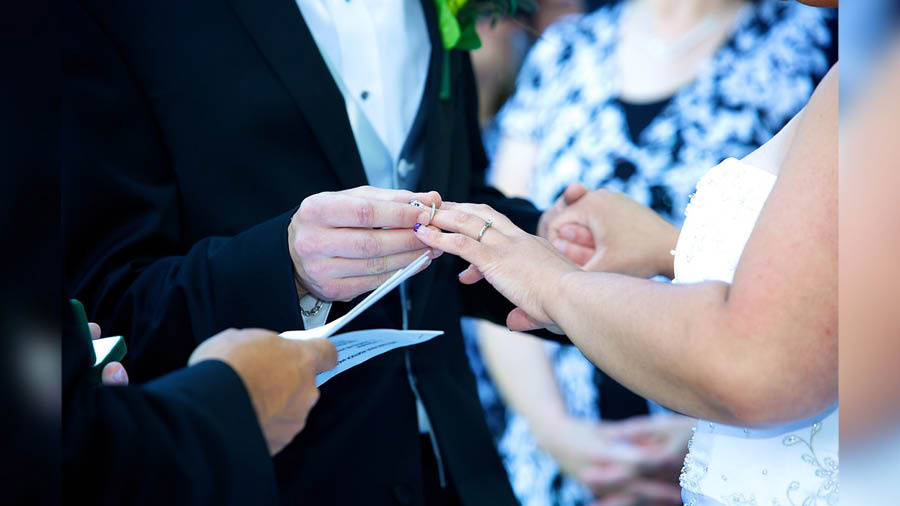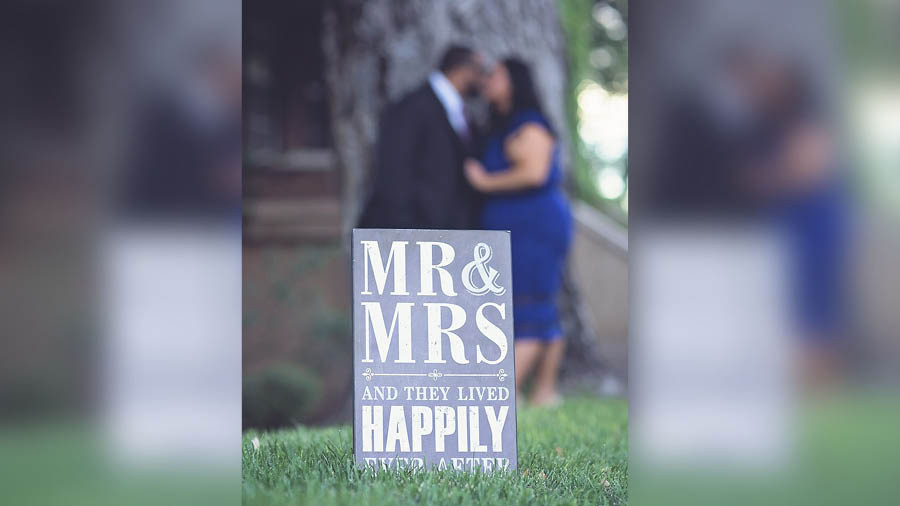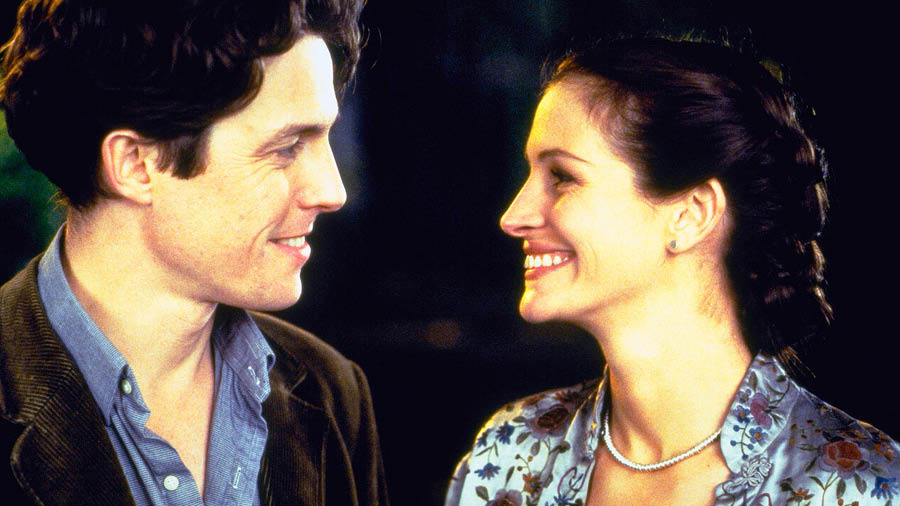In Ian McEwans’s lyrically haunting novella, On Chesil Beach, the central protagonist Edward is left wondering what might have been had he returned to his darling bride, Florence, on their wedding night after a vicious spat on the beach outside their hotel. If only he had not let his ego intervene, an elderly Edward surmises, he might still have been married to the girl of his dreams.
The incident was tragicomic. After a sexual romp gone terribly amiss (both of them were virgins), each chose to talk around the subject rather than address the elephant in the room. She brought up money and class, and that was perhaps the last straw.
How many times do we listen to what our loved ones are saying without really trying to understand them?
Communication in a relationship is like blue ticks on WhatsApp chats

‘In a relationship, blue ticks would suggest the message has been heard as well as understood’ Shutterstock
I would like to think of communication in a relationship as akin to blue ticks on WhatsApp chats. In case of the latter, the ticks imply a message has been delivered. And read, too. Let us modify this a tad for the sake of relevance. In a relationship, blue ticks would suggest the message has been heard as well as understood.
I have this memory as clear as a photograph I recall from a photoshoot (part of a portfolio for a potential career in modelling; a picture that looked good from the neck up). It was of a couple my wife and I knew well. The wife is asking her hubby if she might pack something for him from the club, as he is leaving for home to make sure the kids are all right. Her hands are fondly massaging his neck and he replies endearingly, “No thanks, baby”.
I can swear that right then and there, I said to myself, “If there ever were a ‘poster couple for marriage’ contest, these two would win it hands down.” Not because of what they said, but the way they did.
Which is why, I was stunned to learn a couple of years on, that they were filing for divorce. A pretty nasty one at that, too. That being said, there is probably no spouse who will say, “Please sign on the dotted line so we can make babies with other people, honey.” Today, that friend of mine might squeeze her ex-hubby’s neck with a vengeance and choke him to death, if she finds herself in the same position from years ago.
Can people actually ‘grow apart’?

How many couples are actually able to continue together till death sets them apart? Pixabay
I have heard many divorced people talk of their estrangement as being a result of having “grown apart” from the people they once loved. One woman told my cousin that she left her husband of 20 odd years because “I wasn’t attracted to him anymore”. A case of Fifty Shades of Grey Hair?
Whatever happened to “Till death do us part”?
More than “growing apart”, there comes a time when people tweak their relationship settings to “blue ticks disabled”. They listen to what their partner is saying but have ceased trying to understand them.
What my friend was telling her hubby in the club long ago was not “I want you to eat some food”, but rather, “Why should you eat boring ghar ka khana when I’m going to be tucking into outside food?”. And he got it, too, the ticks in his relationship as cerulean as the waters of the club pool. The scary thing is continually trying to “get” what our partners are thinking. Perhaps they are whispering “I love you” in our ears as they make love to us, while intending it for others.
Then there is Hiren Bhai, a diamond merchant from Ghatkopar, a suburb in Mumbai, who is allowed “full purmissan” from his wife Savita Ben, for “majaa” in Bangkok.
I know a friend who was forced into marriage by his parents. He found himself with a wife so unlike him that it seemed impossible they could grow farther apart. His perfect idea of a Saturday night was club hopping, and hers curling up in her comforter with a copy of Lady Chatterley’s Lover. That marriage never took off. Worse still, it ended in one of the messiest divorces. Lives were changed forever. Not one, but four (add two innocent children, innocent bystanders in the crossfire of the mess their parents had created).
Move on. Life goes on and so should you

People who think there was something worth salvaging about their failed relationships struggle to move on Pixabay
That is the thing about divorce — there is always some bitterness involved. You can sugarcoat it, darling, and say things like “Oh, he’s a great dad to my kids”, but when you see him holding another woman’s hand in public, you instinctively go: “That bastard! And how old is that b*tch, anyway?”
Sometimes people stay in marriages for their children. I, for one, do not think they are making any sacrifices in doing so. If you love your child, you stay married. For them.
Then there is this other thing with blue ticks. People who leave that last message unread, even though it flashed on their mind’s screen moments ago. Like when Savita Ben tells Hiren Bhai, after a mundane breakfast conversation over chai and dhoklas: “Have a good day”. He ignores it entirely and walks out of the door. She does not see what is unfolding before her eyes, until it is too late. She finds out that Hiren Bhai has entered into a romantic liaison with Minesh Kajaria (last name not related to the tile company). He has long since disabled those blue ticks. That is when Savita Ben thinks to herself, “I should’ve known it was a ladyboy!”.
If I could say one thing to embittered divorced folks, it would be this: Move on. Life goes on and so should you. And yes, for those that are still married: Do not disable those blue ticks. People are saying things in subtle ways that might just revive that flagging romance.
Or libido, for that matter.
Years from now, you do not want to end up like Edward from the novella, thinking there was something truly worth salvaging in your relationship. Something that could have been your happily ever after.
Rohit Trilokekar is a novelist from Mumbai who flirts with the idea of what it means to love. His heart’s compass swerves ever so often towards Kolkata, the city he believes has the most discerning literary audience.


